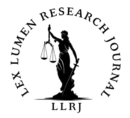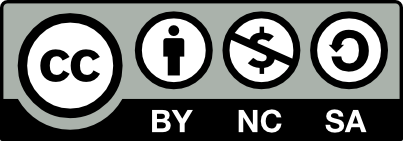Written by A Shree Nidhi,
BBA.LLB(Hons), Alliance University
December 2024
ABSTRACT:
Patent law and biotechnology have become a hot topic due to the rapid development of genetic engineering and biotechnology. This has led to changes in patent law, balancing ethical considerations with intellectual property rights. Historically, patent law allowed for temporary exclusivity, leading to increased investments in R&D. However, as genetic engineering evolved, ethical concerns emerged, such as environmental impact, commercialization, and genetic discrimination. As biotechnology expanded, lawmakers and patent administrators worldwide focused on ethical considerations. Rules and regulations were established to avoid patenting genetic materials found in nature or related to human health. International agreements like TRIPS[1] set global patent standards to address ethical issues arising from biotechnology law. Balancing protection from abuse with the best benefits of genetic engineering is crucial. Communication between the public, scientists, legislators, and bioethicists is essential to ensure patent laws allow biotechnology innovation while maintaining ethical standards.
Key Words: Biotechnology, Ethical Concerns, Patent, Innovations, Healthcare
INTRODUCTION:
Over the past 50 years, the ethical, moral, social, legal, political, and economic implications of science have become increasingly significant, especially in biotechnology. The Diamond v. Chakrabarty[2] ruling in 1980 established the basis for patenting biotechnological advancements, leading to the amendment of the European Patent Convention. However, patenting biotechnology presents ethical issues like market monopolization, genetic privacy, exploitation of indigenous knowledge, and long-term ecological effects.
Some argue that patenting genetic material or living things treats life like a commodity and crosses ethical lines. A well-rounded strategy for biotechnology patenting is needed to promote innovation while safeguarding environmental sustainability, ethical norms, and public health. Biotechnology patents must balance innovation with fair medical treatment access, avoiding monopolies, privacy concerns, and biopiracy, while upholding ethical principles and promoting innovation without hindering essential care. What ethical implications arise from patenting biotechnological innovations, particularly when it comes to access to necessary medical treatments?
INTELLECTUAL PROPERTY RIGHTS AND MEDICINE:
The patenting of genetic material has been a contentious issue in biotechnology and patent law, with concerns over ownership, control, and moral application. Critics argue that life belongs to a person, and patenting genes breaches basic ethical standards. The historical case of Myriad Genetics[3] patenting genes associated with ovarian and breast cancer risks highlights the tension between innovation and defending moral principles. Balancing societal concerns, bioethics, and proprietary interests is crucial in biotechnology patenting, as patent holders can influence the creation, cost, and availability of biotechnological innovations. Balancing innovative incentives with fair access to biotechnological advancements remains a major ethical concern.
The Indian pharmaceutical industry faces challenges related to IPR:
The Indian pharmaceutical sector has grown significantly over the past 50 years, transitioning from a major importer to a major manufacturer of bulk medications. The Indian Patents Act, 1970[4], provides a legal framework for patenting product creation inventions, while the TRIPS Agreement offers 20 years of patent protection. The Patents (Amendment) Act of 2005 overturned the 1970 Act[5], making product patents legal. Bioethics, a subfield of philosophy, addresses the moral implications of biological research and its applications in biology and medicine. Focusing on moral principles may diminish their legal significance.
Global Perspectives on Biotechnology Patents:
Biotechnology patents are crucial for innovation and advancement, but there are significant differences in biotechnology patent laws worldwide due to legal, ethical, and cultural viewpoints. The US has a strong track record in awarding patents for biotechnological innovations, such as the Diamond v. Chakrabarty[6] case, which allowed genetically engineered creatures to be patented. This has led to the US becoming a leader in biotechnology innovation but has also sparked discussions about the moral implications of commodifying living things. European patent law, however, has adopted a more cautious approach, particularly regarding biotechnological procedures involving human embryos. This highlights the need to balance ethical considerations with scientific advancement, especially in fields with moral and societal implications.
Indian Perspectives on Biotechnology Patents:
The Indian Patent Act of 1970[7] provides guidelines for the primary or planned application of an invention, or its commercial exploitation, to be against public order or morals, or to seriously harm human, animal, plant, or environmental health. The Novartis Glivec lawsuit in India, which took over ten years to settle, was a significant precedent for the pharmaceutical industry. The Indian Supreme Court affirmed the Indian Patent Office’s ruling in 2013 to deny Novartis International AG patent rights for the cancer treatment medication imatinib mesylate. The Intellectual Property Appellate Board (IPAB)[8] rejected the lawsuit on the grounds of order public, demonstrating that community or societal needs, especially public health, come before business interests.
CONCLUSION:
Biotechnology patenting is a powerful tool for innovation, incentivizing risky research and reducing R&D costs. However, it can lead to monopolistic pricing, exclusion of poor groups, and worsen health inequity. Ethical concerns include ownership, privacies violations, and human rights. Patents restrict access to biotechnology, impede scientific research, and reduce cooperation. A holistic approach to biotechnology patenting is needed, balancing intellectual property rights with the ethical imperative of enhancing human wellbeing.
REFFERENCE:
- Faizanur Rahman, Patenting Biotechnological Inventions, IPCLR, https://ipclr.iledu.in/wp-content/uploads/2024/01/V2I25.pdf (last visited Nov. 12, 2024).
- John P. A. Ioannidis, Why Most Published Research Findings Are False, Nature Precedings (2012), https://www.nature.com/articles/npre.2012.7065.1.pdf (last visited Nov. 12, 2024).
- “Ethical Dimensions of Intellectual Property Rights in Biotechnology: Striking a Balance Between Innovation and Access,” Legal Service India, https://www.legalserviceindia.com/legal/article-14966-ethical-dimensions-of-intellectual-property-rights-in-biotechnology-striking-a-balance-between-innovation-and-access.html (last visited Dec. 21, 2024).
[1] Agreement on Trade-Related Aspects of Intellectual Property Rights, Apr. 15, 1994, 1869 U.N.T.S. 299.
[2] Diamond v. Chakrabarty, 447 U.S. 303 (1980)
[3] Ass’n for Molecular Pathology v. Myriad Genetics, Inc., 569 U.S. 576 (2013).
[4] The Patents Act, 1970, No. 39 of 1970, India.
[5] The Patents Act, 1970, No. 39 of 1970, India.
[6] Diamond v. Chakrabarty, 447 U.S. 303 (1980)
[7] The Patents Act, 1970, No. 39 of 1970, India
[8] Intellectual Property Appellate Board, established under the Trademarks Act, 1999, No. 47 of 1999, § 83, India.


